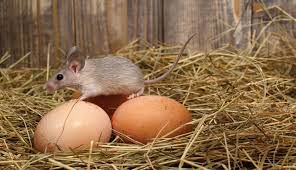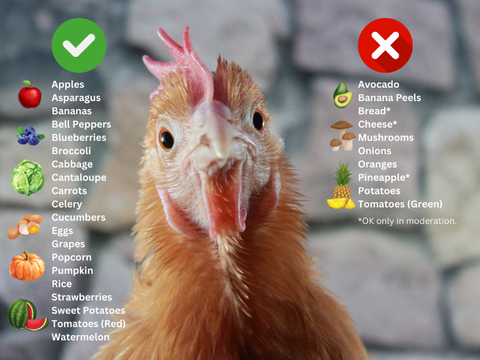Keeping chickens is full of joys—fresh eggs, funny chicken antics, and that satisfying cluck soundtrack in your backyard. But let’s be honest… not everything about chicken keeping is sunshine and omelettes. One of the less glamorous challenges? Rodents.
Mice and rats love chicken coops as much as your hens do. Why? Because you’ve basically given them an all-you-can-eat buffet and a cozy place to crash. But don’t panic—here’s how to spot, prevent, and manage unwanted furry freeloaders.
🐀 Why Rodents Love Your Coop
-
Free food – Spilled grain, discarded scraps, and tasty eggs are irresistible.
-
Shelter – Bedding, straw, and warm corners make the perfect mouse motel.
-
Safety – A coop is predator-free… unless you count your hens (and let’s face it, they’re not chasing rats).
The problem? Rodents don’t just eat feed. They can:
-
Spread disease 🦠
-
Chew through wood and wires 🔌
-
Stress out your flock 😟
-
Steal eggs (the ultimate crime!) 🥚
👀 Signs You Have Rodents
-
Tiny droppings near feeders or nesting boxes.
-
Gnawed feed bags or chewed wood.
-
Holes and burrows around the coop perimeter.
-
Hens acting nervous or laying fewer eggs.
If you spot one mouse, assume there are more—they’re team players.
🛠️ Rodent-Proofing Your Coop
Good news: prevention is way easier than eviction. Here’s how to make your coop less attractive to pests:
🍽️ Manage Feed Like a Pro
-
Use treadle feeders such as our feed-o-matic feeders or hanging feeders to reduce spillage.
-
Store feed in metal bins with tight lids (plastic = chew toys).
-
Remove food at night when hens are roosting.
🏠 Secure the Coop
-
Block holes larger than a pencil (yes, mice can squeeze through that!).
-
Line the floor with hardware cloth, especially if your coop is on bare ground.
-
Collect eggs daily so rodents don’t develop a taste for them.
🧹 Keep It Clean
-
Clear away spilled grain and scraps.
-
Replace bedding regularly.
-
Keep the area around the coop tidy—stacked wood, tall grass, or junk piles make perfect rodent hideouts.
🚫 Control Options (No Cats Required!)
-
Snap traps (placed safely outside of chicken reach).
-
Electronic traps for a no-mess solution.
-
Natural deterrents like peppermint oil or planting mint around the coop.
-
Barn cats—if you’ve got one, you’ve basically hired free pest control.
⚠️ Avoid poisons: they’re dangerous for your chickens, pets, and local wildlife.
🌟 Final Peck
Rodents are clever, determined, and always hungry—but with smart coop management, you can make your chicken setup a no-go zone for unwanted guests. Stay on top of cleaning, store feed securely, and keep an eye out for sneaky signs. Your flock will be happier, healthier, and stress-free… and you’ll sleep better too knowing your eggs are safe from thieves! 🥚🐓✨




